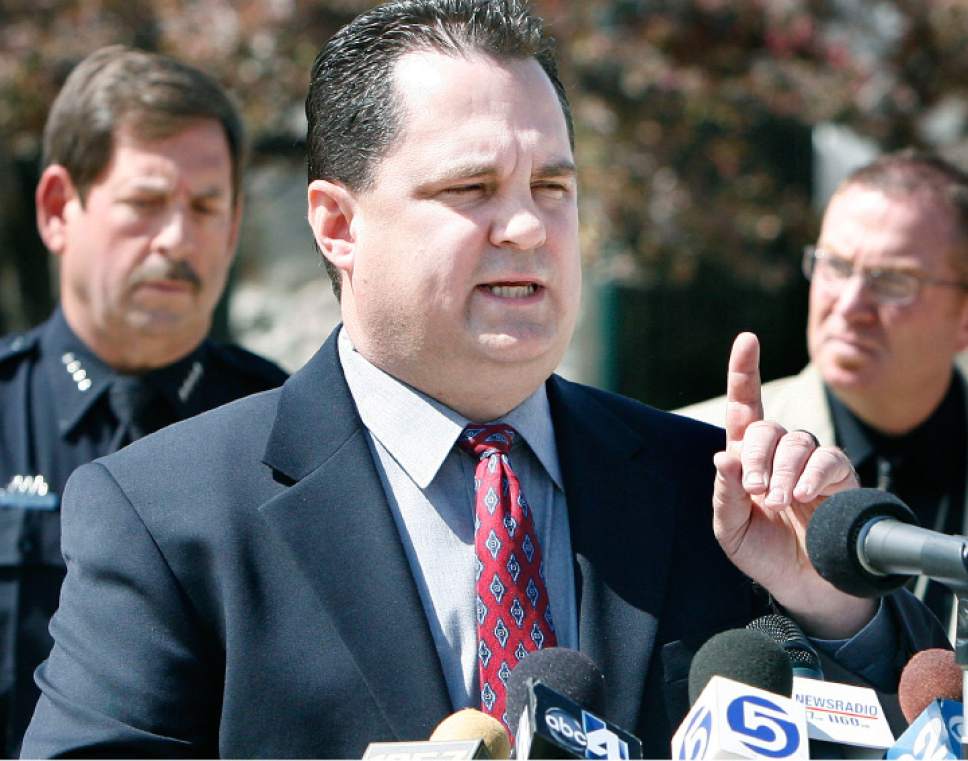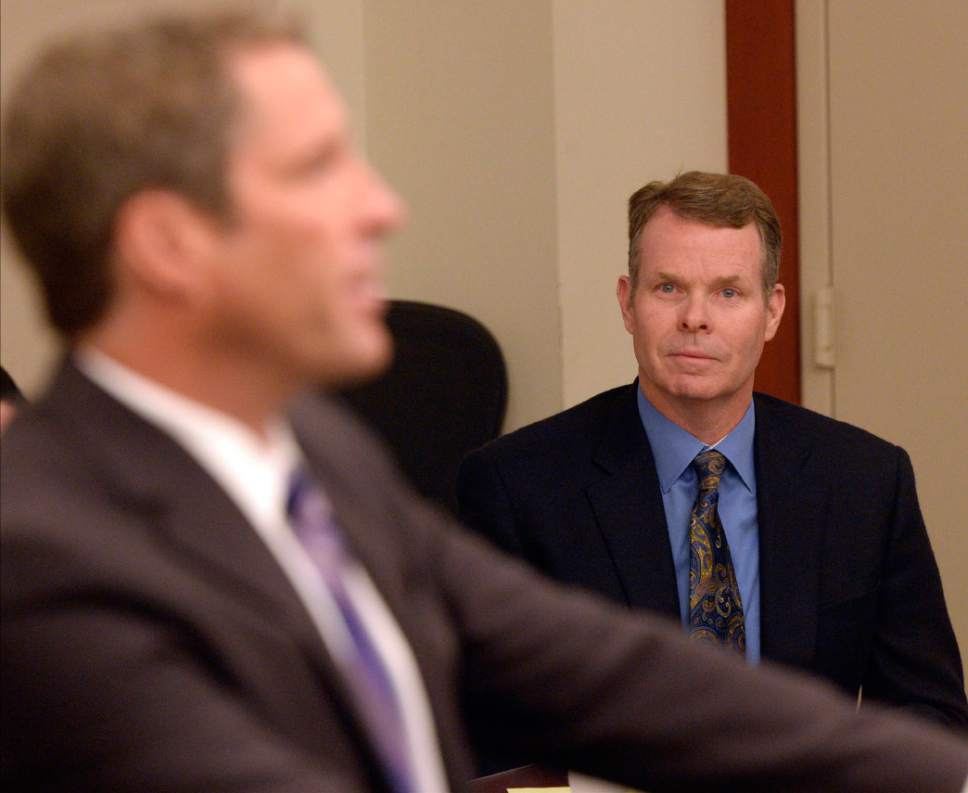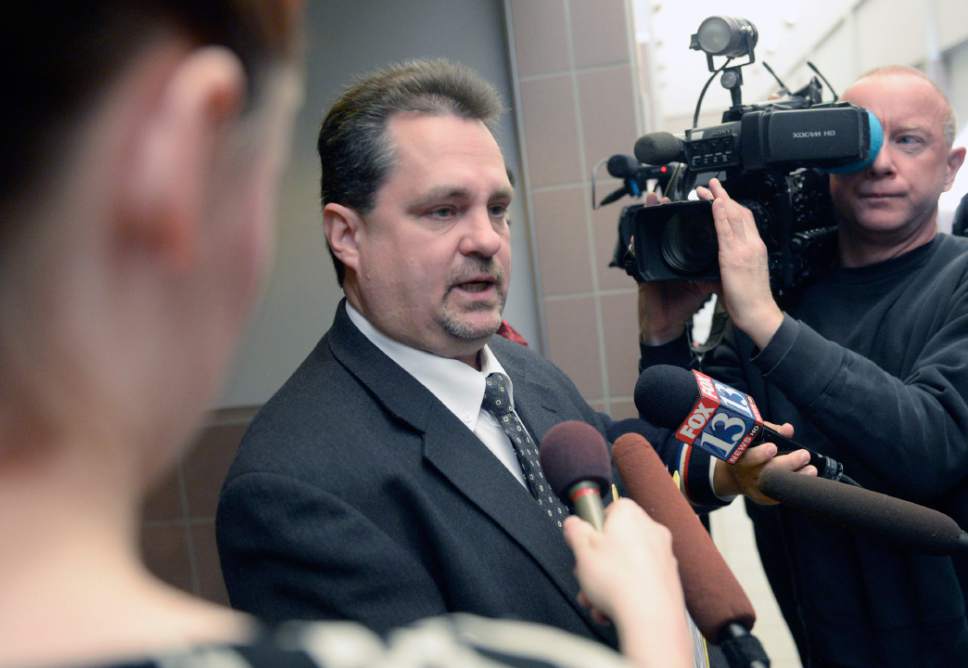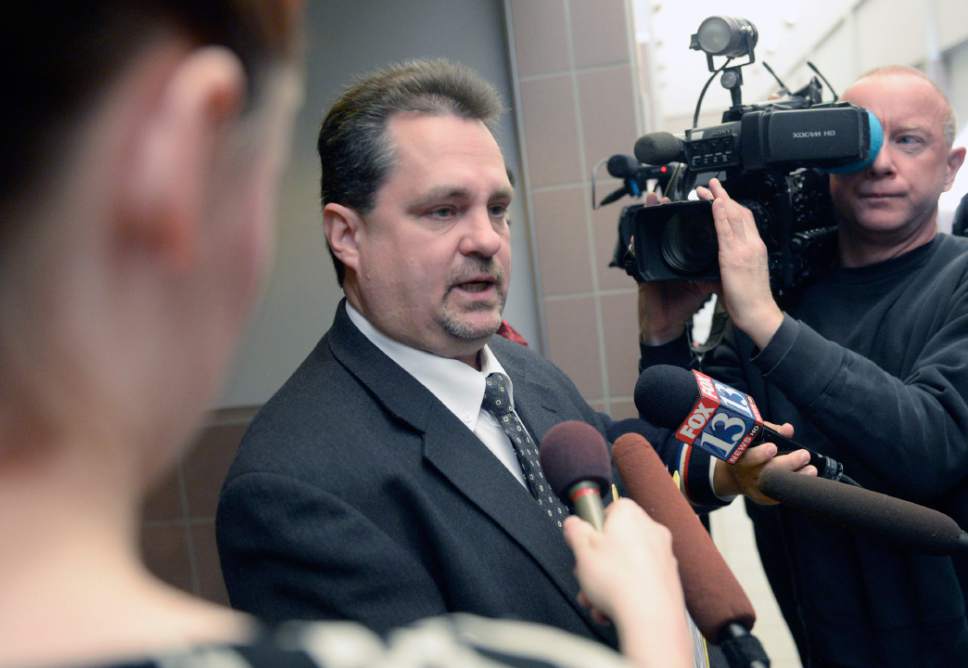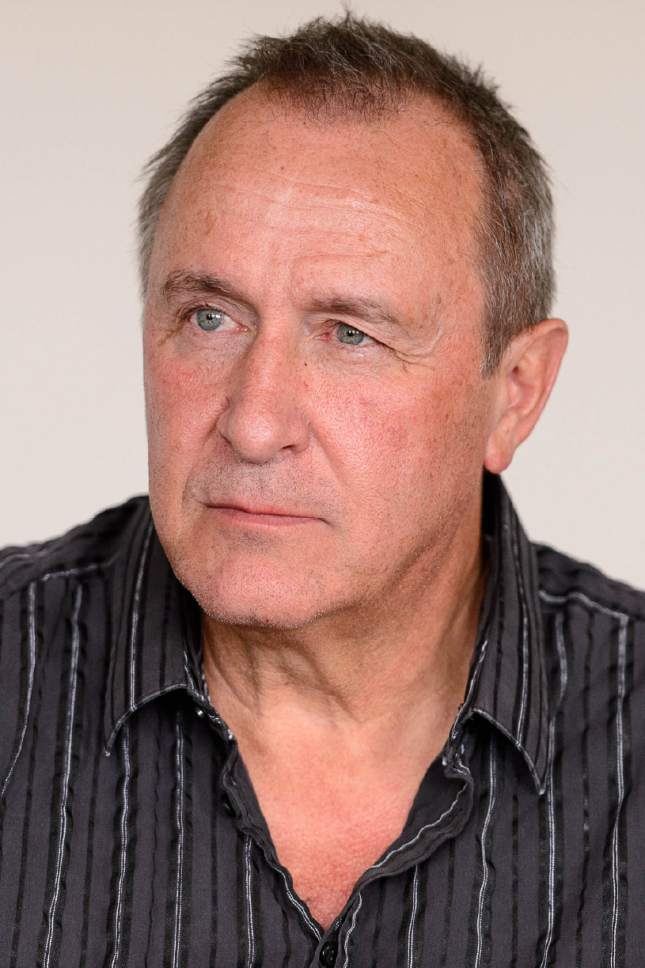This is an archived article that was published on sltrib.com in 2016, and information in the article may be outdated. It is provided only for personal research purposes and may not be reprinted.
Nearly five months after he was promised the backing of the Utah attorney general's office, Davis County's chief prosecutor is still trying to muster funding for a state grand jury to explore allegations of public corruption stemming from the Swallow-Shurtleff scandal.
Davis County Attorney Troy Rawlings was promised $50,000 for his so-called Rogue Runner investigation, a sprawling spinoff of the multiyear investigation of former Utah Attorneys General John Swallow and Mark Shurtleff that could impact politicians, business leaders and law enforcement officials stretching from Salt Lake City to Washington.
"We are in discussions concerning the scope, mechanics and resources necessary," Rawlings said. That's because Rogue Runner's ambitious goals and the "ramifications of the investigation" will undoubtedly require more than $50,000.
The higher tab, he added, has complicated reaching a deal with the attorney general's office, which has budgetary concerns, and triggered a conversation about alternative funding sources, including a legislative appropriation.
Rawlings hopes to resolve the funding issues "as soon as is logically feasible."
Daniel Burton, spokesman for the Utah Attorney General's Office, said Friday that the "negotiations are ongoing and that the status of the grand jury conversation with Rawlings has not changed."
Rawlings has a been mostly silent on the Rogue Runner investigation, which stems from unanswered questions about various aspects of the Shurtleff and Swallow cases.
The two former officeholders were the subjects of an investigation by federal, state and local authorities. U.S. prosecutors declined to press charges, but Rawlings and Salt Lake County District Attorney Sill Gill brought corruption charges against both men in 2014.
Gill's prosecution of Swallow continues. But a judge tossed out the Shurtleff case in July at the request of Rawlings, who cited an ongoing cooperation agreement with the former defendant as one of several grounds for ending the matter.
Shurtleff is expected to testify before a grand jury if it is impaneled.
Rawlings has offered few public details about the wider probe, but court papers and other documents show he has been collecting evidence about longtime Sen. Harry Reid, D-Nev., the 2010 campaign of Sen. Mike Lee, R-Utah, the U.S. Department of Justice's Public Integrity Section and staffers with the U.S. attorney's office for Utah, along with other state and local officials.
If a grand jury happens, Rawlings said, witnesses would be "subpoenaed and called from places such as New York, Washington, D.C., Virginia, Tennessee, California, Washington state, Nevada, Oklahoma and multiple places overseas, such as the Republic of the Marshall Islands."
Securing funding, however, is only half the challenge. Rawlings also would have to convince a five-member panel of state judges that a grand jury is warranted.
State grand juries are rare in Utah. Most prosecutors file criminal cases directly with a district court. A preliminary hearing then determines whether they have sufficient evidence for a trial.
Grand juries work in reverse: Witnesses testify before nine to 15 jurors, who then weigh the evidence and decide, by majority vote, whether to issue an indictment.
By law, the panels are held in secret, so even if a proceeding is held, the outcome of any Rogue Runner probe would become public only if indictments result.
What a grand jury might examine
Davis County Attorney Troy Rawlings wants a grand jury to consider evidence about the following:
The abrupt withdrawal of the Department of Justice Public Integrity Section (DOJ-PIN) from investigations of former Attorneys General John Swallow and Mark Shurtleff in 2013 without filing charges.
The alleged failure of DOJ-PIN and the FBI to seriously investigate allegations by St. George businessman Jeremy Johnson that Swallow helped initiate an effort to bribe Sen. Harry Reid, D-Nev., to stall an investigation by federal regulators into Johnson's online marketing company.
The prosecution of Johnson by the U.S. attorney's office in Utah and the connections between Swallow and then-federal trial attorney Brent Ward, who had been Johnson's chief prosecutor at a time the businessman was trying to pressure Swallow to return monies from the Reid deal.
Mike Lee's 2010 Senate campaign, which allegedly received about $50,000 from Johnson through so-called "straw donors" at a time when Johnson and his partners were processing illegal online-poker transactions.
The development of a Utah Transit Authority FrontRunner station in Draper. The $65 million Whitewater VII project became the subject of a state probe and a legislative audit.


